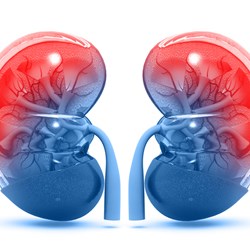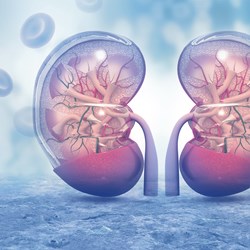Kidneys
Kidney damage
Your kidneys are responsible for cleaning your blood of any toxins that pass out of the body as urine, regulating your fluid and salt balance and they also release hormones.
This balance of salts and fluids is an important function as they help control blood pressure. Persistent high blood glucose levels damage the membranes around the small blood vessels of the kidneys which means they don’t work as well at filtering out the waste products in our blood.
This is known as diabetic kidney disease or ‘diabetic nephropathy’. Kidney disease tends to happen gradually, over many years. This is why you have your kidney function checked as part of your diabetes care.
Kidney disease is treated and prevented by controlling your blood pressure and blood glucose levels. In some rare cases, kidney function can deteriorate so much that kidney dialysis might be necessary and some may have a kidney transplant.
To find out more about diabetes and kidneys, register for our Understanding Type 1 Diabetes or our My Type 2 Diabetes online courses. There is also a list of additional resources about diabetes and kidneys below.
Register to access your GP health results
Do you know your latest eGFR reading? If you have diabetes you can register to access your GP diabetes health results through our patient access dashboard.
Advanced Search
Resource type -
Language -
Type of diabetes -
Diabetic nephropathy is the name given to kidney damage caused by diabetes. It develops slowly, over many years, and is also referred to as kidney disease. Almost one in five people with diabetes will need treatment for diabetic nephropathy but there’s a lot you can do to reduce your risk of develop…
This page contains a brief overview of the effects of diabetes on the kidneys.
This TREND UK leaflet is about your kidneys and chronic kidney disease (CKD). This is a complication that can occur in some people with diabetes. It explains how you can reduce your risk of developing CKD, or slow its progression if you already have kidney damage.




